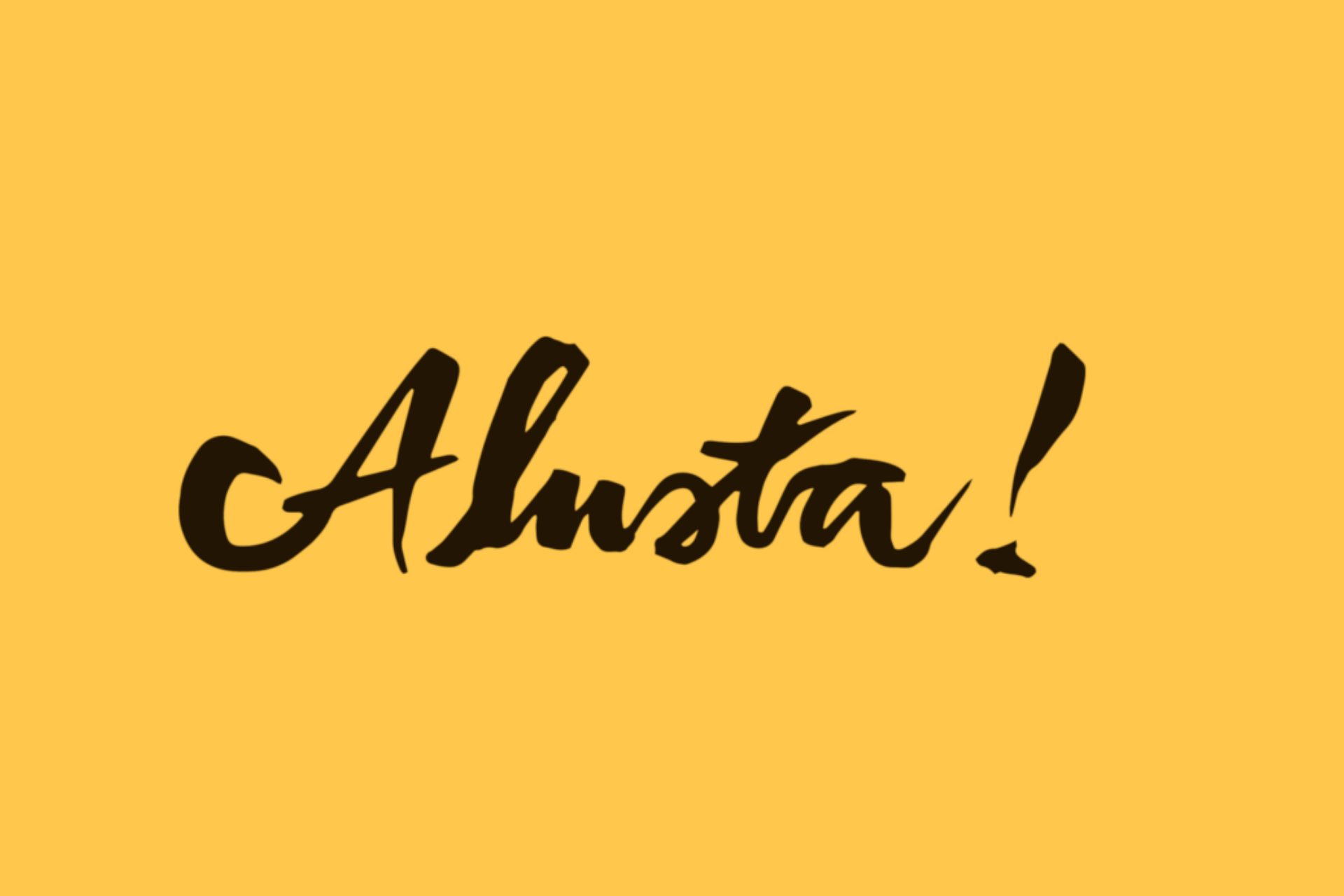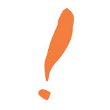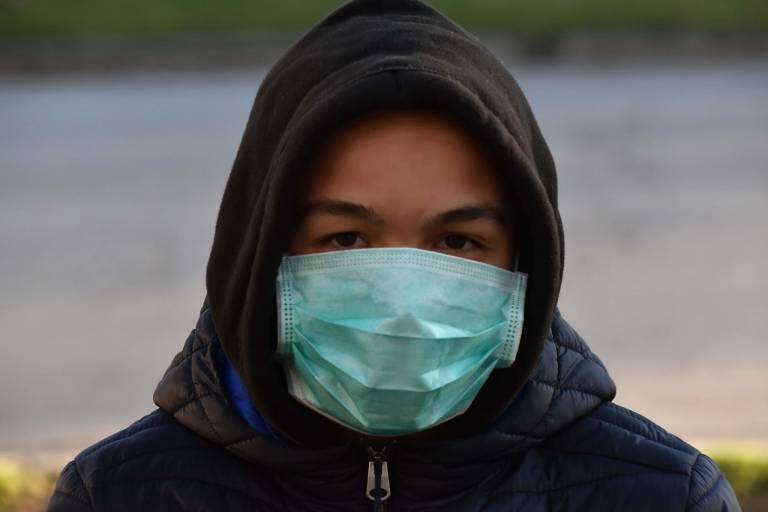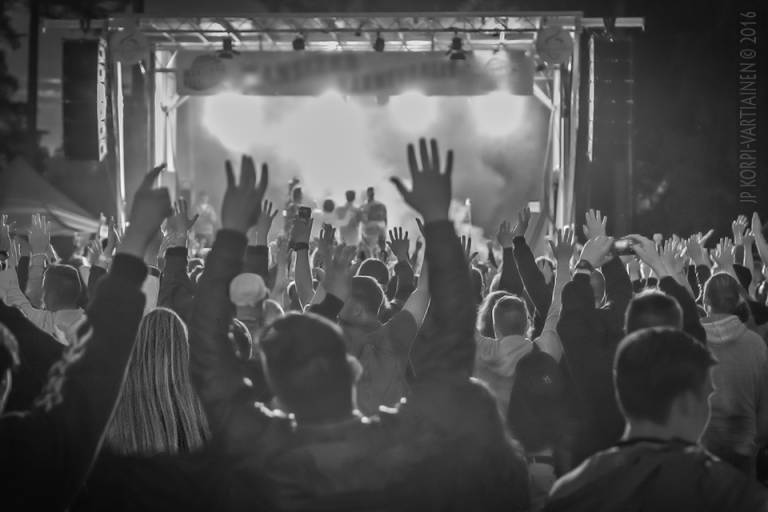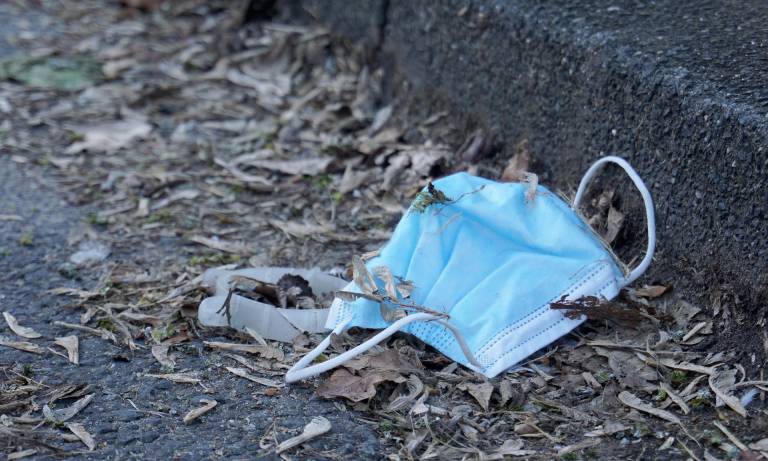Limitations in health facilities, medicines and economic life of Iranians which become more tangible in time of corona pandemic is not a starting point of humanitarian issues against Iranian people; it is the point when it becomes visible to the western countries. It is more visible because European people have begun to experience the same issue, for instance, when the US restricted their access to the face masks.
Episode 1
On Thursday 19th of February, the Iranian news agencies published shocking news: the first case of positive corona virus patient was diagnosed officially in Qom, the holy city of Iran.[1] The day after that, my mother told me on a video call that there was no alcohol-based hand gel at pharmacies and stores in the capital city of Tehran. I heard similar stories from my sister, sister in law and some of my friends.
At that moment I became concerned about how I can help my family in this hard situation. When you are being far from your beloved family physically, tackling these kinds of restrictions becomes an emotional interaction. I had left the office at the university in Tampere- Finland the day after and bought some hand hygiene gels and went to the post office to post a letter to my family in Iran.
When the post office machine called my queue number, I went to the post desk with a light heart and good spirits so necessary to help me cope with my anxiety. The post office personnel read the address which I had written on the envelope and asked me whether I wanted to post something to Iran? I answered her curious look with an affirmative. She told me that it was not possible. My heart missed a beat. I asked her the reason. And she explained that Finland has stopped post services to Iran for a while. She informed me that it possibly was due to the PS 752 flight.[2]
The PS 752 flight was accidentally brought down by Iranian missile in January 2020 and killed 176 passengers on board. That tragic event happened in consequence of the heightened tensions between Washington and Tehran since America killed a top Iranian general some days before.[3]
Episode 2
As of Friday, April 10, 2020, Iran has reported more than 66,000 COVID-19 cases and almost 4110 deaths[4] and the country has issued a warning that millions may die.[5] There has been an outbreak of COVID-19 in most of the countries around the world. As a consequence of the COVID-19 pandemic in Europe, and especially in the countries that are most affected, such as Italy and Spain, many companies had to shut down completely.[6] EU commission president Ursula von der Leyen confirmed on Monday (16 March): ”This global health crisis has a severe effect on our economies.” The EU commission affirmed, ”We are at war with the virus. An economic war.”[7]
The everyday life of Iranians and Sanctions
Tackling the “economic war” is not the consequence of COVID-19 for the Iranians; instead, this war is part of Iran’s everyday diplomacy since the triumph of the Islamic revolution 1979 and its aftermath. The so-called 1979 Iran hostage crisis in November 1979, in which 52 US citizens were held captive for 444 days,[8] has been a starting point of a series of sanctions, beginning with a ban on Iranian oil imports, blocking billions of Iranian Government assets and the embargo on US trade with Iran and travel to Iran.[9]
This approach continued for years and in July 2010, when President Barack Obama signed into law the Comprehensive Iran Sanctions, he imposed excruciating economic pressure on the Iranian population, especially the working class, and jeopardized many people’s lives by making life-saving medicine unaffordable (Shakhsari 2020).
President Donald Trump has followed a similar approach. In 2015, Iran agreed on a long-term deal on its nuclear program with a group of world powers known as the P5+1: the US, UK, France, China, Russia and Germany.[10] However, Donald Trump, in his presidential campaign, promised to pull out of this landmark 2015 nuclear deal agreed between Iran and world powers. By insisting that the Iran nuclear agreement is a bad deal the United States announced its withdrawal from the Joint Comprehensive Plan of Action, “Iran nuclear deal” on 8 May 2018.[11]
In consequence, rather than the state power in Iran, it is the Iranian people who felt the effects of those harsh sanctions when the rial (Iran currency) lost 80 per cent of its value and the sale of oil dropped from a high of 2.5 million barrels a day in early 2018 to about 250,000 barrels. As a result of the sanctions, Iran’s gross domestic product (GDP) contracted an estimated 4.8 per cent in 2018 and is forecast to shrink another 9.5 per cent in 2019, according to the International Monetary Fund. The unemployment rate meanwhile rose from 14.5 per cent in 2018 to 16.8 per cent in 2019.[12]
Indeed, the Iranian health sector has been affected by sanctions drastically, although it is ranked among the most resilient in the region. According to Takian, “All aspects of prevention, diagnosis, and treatment are directly and indirectly hampered, and the country is falling short in combating the crisis. Lack of medical, pharmaceutical, and laboratory equipment such as protective gowns and necessary medication has been scaling up the burden of the epidemic and the number of casualties” (Takian 2020).
Besides, there are number of instances which testify to the adverse effect of sanctions on the quality of life of many Iranian. Since the outbreak of COVID-19 pandemic, health specialists have stressed on the linkage between nutrition and immunity system and argue that poorly nourished individuals are at a greater risk of various bacterial, viral, and other infections and therefore all of us must pay attention to our diet and nutritional status during the ongoing COVID-19 pandemic (Fawzi and Wakter 2020).
According to Said Mirza Razaz, head of Iran Nutrition and Food Industry Society, “Anyone must strengthen the immune system of their body, hopefully, to pass the crisis we are challenging with right now.”[13] Besides in a video press conference on March 27, he affirmed that 24-28 per cent of the virus-infected victims in Iran are suffering from malnutrition.”[14] Here low income and bad economic conditions of many families become a significant issue. Low income would affect sufficient food intake in families when insufficiency is defined as inadequacy in the amount of food intake because of a lack of money or resources to access enough food (P.H. Casey 2001).[15]
As US sanctions have affected Iranian people’s access to the labor market and income (Moeeni 2019), Iranian families cannot access sufficient food in general. It is an inescapable fact that economic sanctions have worsened the quality of life and nutrition of many Iranians through the time. However, 19 February is not the starting point of Iranian engagement with various sanctions; in fact, from 1979 and the time of the Islamic revolution everyday life of Iranians is full of the experience of effects of the sanctions.
Put simply, S. Shakhsari (2020) argues, the deaths of many Iranians, was the intended effect of the politics of rightful killing. Some incidents on the ground show how Iran’s economy was badly affected for several years by sanctions imposed by the international community. According to my observations as a journalist, by the time the corona virus hit Iran on February 19, as a result of sanctions the medical treatment facilities and medicines with the Iranian Government became even scarcer.
The snapshot of the current situation
Sara, Asal, Zari, Ali, Nahid and Ashkan were my resources in Tehran, Kashan, and Karaj. I interviewed them between 25 February and 21 March 2020 by WhatsApp call. All of these people or their partners have been suspected to be positive cases of corona virus and have some symptoms of infections although none of them could access corona virus tests at hospitals. According to radiological evidence, they have been recommended by doctors to stay at home, quarantined and take rest.
Asal, one of these people that I have access to, recounts her experiences in tackling with COVID-19. She explains: “I contacted several specialists and finally I decided to start the medicine which is suggested in the treatment protocol of COVID-19 at hospitals. I could not wait until my husband reaches a high level of the disease.” She says she could find those medicines not at pharmacies but in the pharmaceutical black market in Naser-khosro street[16] at a very expensive rate. She is satisfied with her decision as her husband recovered from the virus.
Ashkan and Ali narrated to me about similar stories. Although Ashkan is a pharmacist, he bought medicine from the black market too. The money that he paid was twice that Asal paid after just three weeks. Nahid narrates about their difficulties in finding medicine in pharmacies and black markets too.
Besides, there are several reports from Iranian people on social media, Twitter, and Instagram that show Iranian people and COVID-19 patients cannot access regular medicine suggested by health authorities during treatment of COVID-19 patients unless they reach the level of shortness of breath and when they admitted at hospitals. However, some doctors unofficially suggested the patient take the medicine if they could; all the patients can’t buy those medicines from the black market which is beyond their means, the validity and the accurate expiry date of those medicines are also questionable.
The experience of “stay at home” before corona pandemic
Limitations in health facilities, medicines and economic life of Iranians which become more tangible in time of corona pandemic is not a starting point of humanitarian issues against Iranian people; it is the point when it becomes visible to the western countries. It is more visible because European people have begun to experience the same issue, for instance, when the US restricted their access to the face masks.
Economic sanctions are not the only form of restriction in the everyday life of Iranians. In a time that all the governments around the globe are asking their civilian population to follow the “stay at home” order, Iranian people remember their memories of being banned and forced them to stay at home some years earlier by the so-called “Muslim ban.”
On January 27, 2017, President Donald Trump signed an Executive Order that banned foreign nationals from seven predominantly Muslim countries from visiting the USA. Since President Trump’s 2017 travel ban went into effect, thousands of Iranians have been separated from their families in the United States. The travel ban has affected the lives of more than 30,000 Iranians, whose visitor and permanent visas to the United States have been denied since 2017.[17]
Consequently, the sanction against Iran and its devastating effects is a form of war against Iranian people which has started before corona pandemic and might continue after that. If, as Davis (2020) argues, the world now tackles the corona as a monster which was fueled by capitalism,[20] Iranian people will have to tackle the corona as a monster which has been fueled by sanctions and its effects. US sanctions and its domino effects aim at Iranian people’s lives and rights to live and it would sacrifice the lives of many people in Iran in the interest of US benefits.
Resources
Barnes, Julian E., Schmitt. E, Troianovski. A, and Kitroeff. N (2020). ‘Iranian Missile Accidentally Brought Down Ukrainian Jet, Officials Say, Citing Early Evidence’, The New York Times, 9 January 2020, (online) available at: https://www.nytimes.com/2020/01/09/world/middleeast/iran-plane-crash-ukraine.html
https://www.worldometers.info/coronavirus/
BBC News (2019). Iran nuclear deal: Key details, (online) available at: https://www.bbc.com/news/world-middle-east-33521655
BBC News (2019). Six charts that show how hard US sanctions have hit Iran, BBC News. (online) available at: https://www.bbc.com/news/world-middle-east-48119109
Casey.P.H, Szeto.K, Lensing.S, Bogle. M, Weber. J (2001), ‘Children in food-insufficient, low-income families: prevalence, health, and nutrition status’, Arch Pediatr Adolesc Med. 155(4), PP.508–514
Clawson, P (2010). ‘U.S. Sanctions’, The Iran Primer, United States Institute of Peace, 11 October 2010. (online) available at: https://iranprimer.usip.org
CNN (2019). Iran Hostage Crisis Fast Facts, (online) available at https://edition.cnn.com/2013/09/15/world/meast/iran-hostage-crisis-fast-facts/index.html
Davis, M (2020). ‘The Coronavirus Crisis Is a Monster Fueled by Capitalism’, In These Times, 20 March 2020://inthesetimes.com/article/22394/coronavirus-crisis-capitalism-covid-19-monster-mike-davis
Eszter. Z (2020). ‘EU struggles to contain corona economic fallout’, EUobserver, 17 March 2020. (online) available at: https://euobserver.com/coronavirus/147767
Gajanan, M (2020). ‘Iran admits it accidentally shot down Ukrainian plane’. 10 January 2020, (online) available at:https://time.com/5761206/iran-plane-crash/
Jalili.S, Alaei. F (2020). ‘Separated Iranian Families Have Been in Self-Isolation for Years’, Foreign Policy, 6 April 2020. (online) available at: https://foreignpolicy.com/2020/04/06/trump-travel-muslim-ban-separated-iranian-families-have-self-isolation-for-years/
Karimi. N, Gambrell. J (2020) ‘Iran warns virus could kill ‘millions’ in the Islamic Republic’, AP News, 18 March 2020. (online) available at: https://apnews.com/6e92d93551ee6c6ae51d0acaaad9eb32
Koutsokosta. Efi, Gauret. Fanny (2020). ‘How has the EU responded to the economic crisis resulting from the coronavirus pandemic?’ Euronews, 2 April 2020. (online) available at:https://www.euronews.com/2020/04/01/how-has-the-eu-responded-to-the-economic-crisis-resulting-from-the-coronvirus-pandemic
McKernan, Bethan (2018). ‘Iran nuclear deal: Why has Trump withdrawn the US from it and why does it matter’, Independent, 9 May 2018. (online) available at: https://www.independent.co.uk/news/world/middle-east/iran-nuclear-deal-why-trump-us-withdraw-effect-europe-rouhani-latest-a8343496.html
Moeeni.S (2019). Essays on Family Economics and Human Capital Development’, unpublished doctoral thesis, University of Calgary, (online) available at: https://www. govinfo. gov/content/pkg/BILLS-111hr2194enr/pdf/BILLS-111hr2194enr.pdf, accessed April 6, 2019.
Shakhsari. S (2020). Politics of Rightful Killing: Civil Society, Gender, and Sexuality in Weblogistan, Duke University Press.
Takian. A et al (2020). ‘COVID-19 battle during the toughest sanctions against Iran’, 395(10229), PP.1035 1036.
Wafaie.F, Walter.W (2020). ‘Ask the Expert: The role of diet and nutritional supplements during COVID-19’, The Nutrition Source, School of Public Health, Harvard University, 1 April 2020. (online) available at: https://www.hsph.harvard.edu/nutritionsource/2020/04/01/ask-the-expert-the-role-of-diet-and-nutritional-supplements-during-c ovid-19/
Footnotes:
[1]https://www.irna.ir/news/83682059/%DA%A9%D8%B1%D9%88%D9%86%D8%A7-%D8%AF%D8%B1-%D9%82%D9%85-%D9%87%D9%85%D9%87-%DA%86%DB%8C%D8%B2-%D8%A7%D8%B2-%DB%8C%DA%A9-%D8%A2%D8%B2%D9%85%D8%A7%DB%8C%D8%B4-%D8%B4%D8%B1%D9%88%D8%B9-%D8%B4%D8%AF
[2] https://time.com/5761206/iran-plane-crash/
[3] https://www.nytimes.com/2020/01/09/world/middleeast/iran-plane-crash-ukraine.html
[4] https://www.worldometers.info/coronavirus/
[5] https://apnews.com/6e92d93551ee6c6ae51d0acaaad9eb32
[6]https://www.euronews.com/2020/04/01/how-has-the-eu-responded-to-the-economic-crisis-resulting-from-the-coronvirus-pandemic
[7] https://euobserver.com/coronavirus/147767
[8] https://edition.cnn.com/2013/09/15/world/meast/iran-hostage-crisis-fast-facts/index.html
[9] https://iranprimer.usip.org/
[10] https://www.bbc.com/news/world-middle-east-33521655
[11]https://www.independent.co.uk/news/world/middle-east/iran-nuclear-deal-why-trump-us-withdraw-effect-europe-rouhani-latest-a8343496.html
[12] https://www.bbc.com/news/world-middle-east-48119109
[13]https://iranpress.com/en/iran-i145332-nutrition_plays_key_role_in_containing_and_curing_the_covid19_iranian_official
[14]https://iranpress.com/en/iran-i145332-nutrition_plays_key_role_in_containing_and_curing_the_covid19_iranian_official
[15] Naser-Khosro street in south Tehran is the black market of pharmaceutical products.
[16]https://foreignpolicy.com/2020/04/06/trump-travel-muslim-ban-separated-iranian-families-have-self-isolation-for-years/
[17] https://inthesetimes.com/article/22394/coronavirus-crisis-capitalism-covid-19-monster-mike-davis

